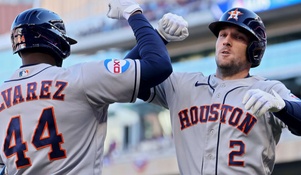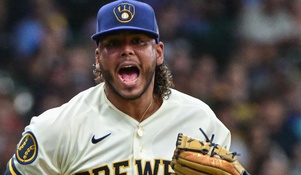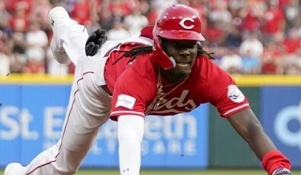That's No eSport: Critiquing the NBA 2K League
The Warsaw program showed its ability to be different and tackle new and emerging industries when it accepted two of its students last fall – Justin Surber and myself. We’re the “eSports guys” in the program and ostensibly sound like crazy people when we talk about the industry. That being said, it should be no surprise that I felt the need to comment on the recent news of the NBA starting a new league exclusively for Take-Two Interactive’s NBA 2K series. So here I am, talking at the internet about rich old white guys paying people to play a simulation of a sport that they already pay people millions of dollars to play for real.
If the NBA expects this to be a significant revenue generator, then this is a terrible idea.
Listen, the NBA is the future of eSports. Teams and owners are investing huge sums of money into eSports organizations and their infrastructure. The Philadelphia 76ers purchased two teams, Dignitas and Apex, back in September while Milwaukee Bucks co-owner Wesley Edens dropped a cool $2.5 million to acquire Cloud9 Challenger (since rebranded as FlyQuest) over the winter. The Houston Rockets hired a Director of eSports and they aren’t even actually involved in eSports yet. The point is, eSports growth is coming from powerful organizations that are investing meaningful resources into something that they correctly believe is on the cusp of exploding. That’s all well and good, but the decision to start a league for NBA 2K shows a fundamental misunderstanding of eSports as a whole on their part.
You can’t just pay people ridiculous sums of money, broadcast their gameplay, and then call whatever you have an eSport. There are reasons games like League of Legends and Counter-Strike: Global Offensive have been so successful at drawing viewership on platforms like Twitch and on TBS. Successful eSports share key qualities that separate them from the likes of Madden, FIFA, and NBA 2K.
An eSport title is designed and maintained to promote parity within its game across different strategies and styles of play. This ensures that no one way of playing the game dominates the landscape, stifling player innovation. This creates periods of different gameplay environments known as "metagames" -- the state in which the game currently exists. Example: On Patch 1.01, "Character A" is widely considered to be the best choice for the role that they play. In fact, "Character A" is played almost 90% of the time in ranked games. This is unhealthy for the game because it stagnates the metagame while the experiences of the players become progressively more homogenized the longer that metagame is maintained. So what does the developer do? They tweak a few numbers or gameplay elements in Patch 1.02 making "Character A" less appealing, or alternatively, "Character B" more appealing. Now the game is more interesting to both play AND watch.
Sports titles can't do this. Part of the appeal of games like NBA 2K or Madden is that the players and teams in-game mirror their real-world counterparts and serves as more of an interactive simulation rather than a competitive experience. If players online used the New England Patriots in Madden 70% of the time, EA Sports can't very well decide that Tom Brady is the problem and cut his ability to throw the ball downfield in half because now they don't have an accurate depiction of Tom Brady in the game. Sports games aren't balanced for competition, they're attempts at virtually representing known commodities and it highly limits their ability to produce an interesting metagame.
Now, this won’t be a problem for the proposed NBA 2K league because there won’t actually be any NBA players represented in the version of the game that they will be playing. Per ESPN writer Zach Lowe, “Real NBA players will not be represented as avatars in the NBA 2K games, Silver and Zelnick said. Competitors will design on-screen avatars based on their own stylistic preferences.” I’ll give you a moment to wrap your head around that. The NBA is arguably the most star-dependent sports league in America. People are drawn to its larger-than-life personalities and those personalities have been responsible for the success the league has seen. So, it stands to reason that a successful derivative video game league would probably need to have those personalities associated with it. Instead, viewers will be graced with custom made avatars of players they’ve never heard of before and have no connection to. The strength of the NBA 2K series is that it has the NBA brand behind it, a brand built by colorful and instantly recognizable personalities.
Another shared quality among successful eSports is a distinct lack of alternatives. eSports find a viewership because 1) People are invested into the game already and want to consume content based around what they're already invested in and 2) they can't watch something similar outside of the realm of eSports. If I watch a professional StarCraft 2 match, it's not actually simulating something I can see in real life. I can't very well go and find a real battle of space marines with flame-throwers riding motorcycles fighting against psychic aliens. This isn't the case for the NBA 2K league. If the league were to air during the winter and spring, when interest in basketball might be at its highest, it’s going up against the actual NBA and the NCAA. If given the choice of watching either a virtual basketball game played by avatars of imaginary people or the drama of a real NBA game, which are you more likely to tune in for? Okay, so we won’t air it during the NBA season – we can air it in the summer and fall! Not so fast, chief. Because your basis of a league is an annual release title, the interest in the game wanes significantly the deeper you get into the product’s year-long life cycle. If you’re airing the games in the fall, people are already looking toward the next release in a couple of months. eSports find success because of their vastly different business model. Rather than releasing a single product each year, these games provide new content and updated systems on a regular schedule – keeping the players constantly engaged and excited about the product and allowing them to air competitions regardless of season.
If the NBA wants to monetize this significantly, then it’s likely that their strategies are going to revolve around broadcasting rights and sponsorship – business as usual for a traditional sports league. Both of those require justification in terms of viewership, and the league is going to be hard-pressed to find the eyeballs to support it. If they try and put this product on television, its going up against real sports and will likely draw the ire of the public wondering why fake basketball is on television. If they follow the traditional eSports broadcasting route and go to a service like Twitch, they’re faced with the very real question of whether that platform is something the typical basketball or NBA 2K fan is even aware of. At the time of this writing (a Wednesday afternoon), the top three NBA 2K17 channels currently broadcasting have 331, 318, and 261 viewers, respectively. Compare that to Hearthstone, whose top three current non-tournament broadcasts boast viewers are boasting over 3,500 concurrent viewers each. While the NBA may be an enormous entity in the world of traditional sports, when it comes to the gaming space, they’re quite small. The new league is going to have a hard time justifying whatever price tag they ask for from sponsors if they’re relying on the reach that the NBA 2K league has to offer.
The eSport industry as a whole is still incredibly young and people are trying to figure out the best way to make it work but I am fairly certain the proposed league for the NBA 2K franchise is not the way to go about it. The NBA needs to re-evaluate how it is going about the business of eSports and recognize that while they may have a hammer, not every problem is a nail. There are real opportunities for the NBA to leverage gaming to connect with its audience, but broadcasting NBA 2K gameplay simply won’t cut it. If anything, the best use of the NBA 2K league is to further engage with its current live basketball fan-base, much in the same way that the NFL runs the Madden Bowl as a predecessor to the Super Bowl. These titles are best served to enhance their namesakes and ensure the long-term success of sports with aging fan-bases, not try and engineer an entire new audience.
With the booming success that eSports is seeing, it is understandable why the NBA would want to attempt something like the NBA 2K league. However, if anyone wants to be successful in the realm of gaming, they have to understand why the likes of League of Legends are so successful. This attempt seems incredibly forced, and if I’ve learned anything about the space during this growth period, it’s that forced efforts from outsiders never work out well for anyone.



